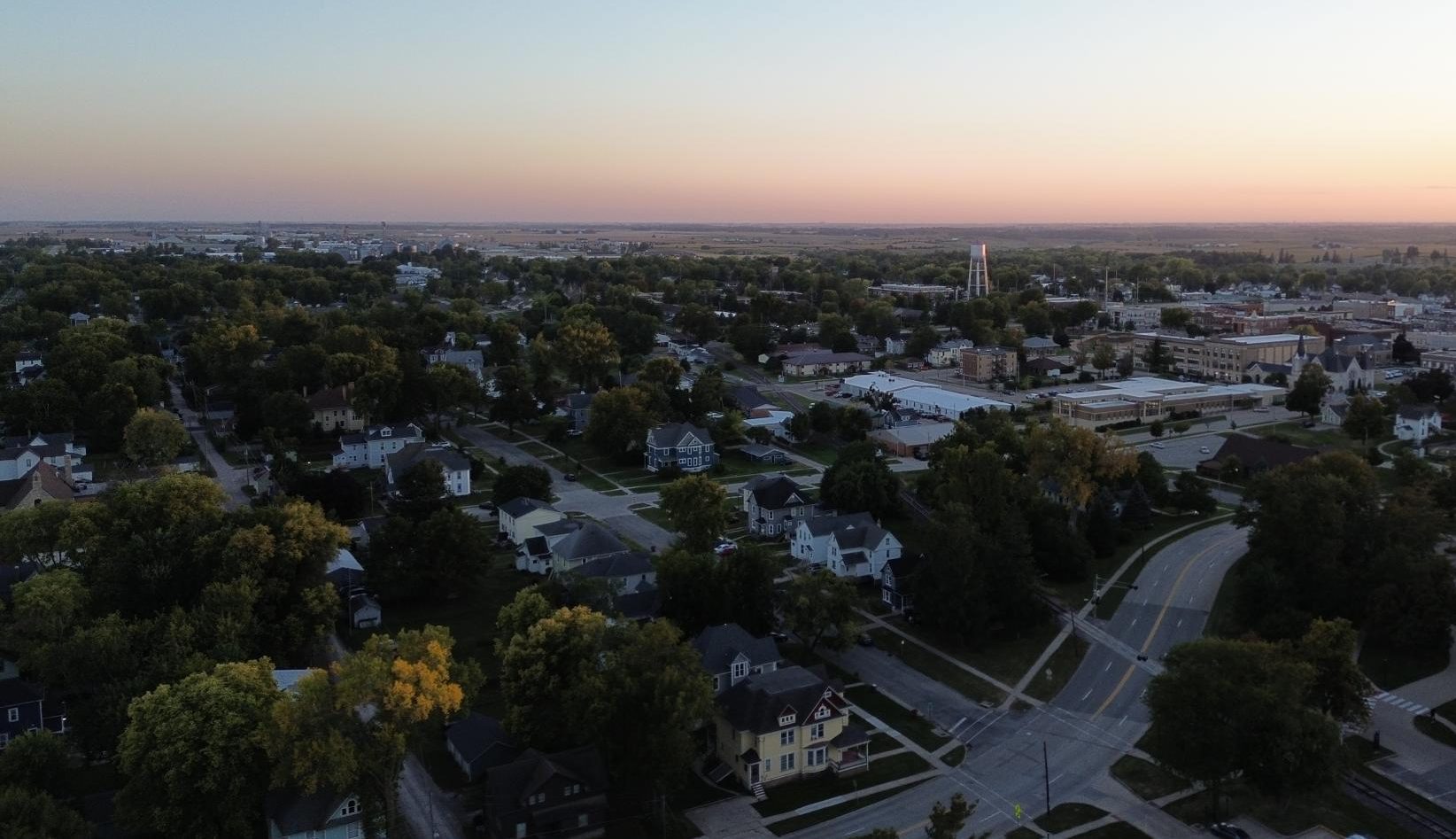The S&B has changed the names and retracted identifying details of students in this article to protect them from any potential consequences of sharing their stories on immigration and undocumented family members.
It’s Jan. 19, the day before Donald Trump’s second inauguration. Estela has chosen this day specifically to fly back to Grinnell from her home country in Latin America.
She’s done this a number of times before. But this time, she’s lost her I-20 form, a document certifying her status as an international student studying at an American college. Sometimes, in the past, Estela hasn’t been asked for her I-20 before being able to re-enter the U.S. But the customs officer asks for it today.
Estela is taken to a room for secondary inspection. She cannot use her phone or leave the room. An hour passes. Finally, an officer calls her for questioning. Where do you go to school? Why don’t you have your I-20? Do you have a picture of it on your phone?
She tells him the truth — Grinnell College, she lost it in the airport and no, she doesn’t have it on her phone. “Don’t lose it again,” the officer says, handing back her passport and visa. Estela has just been re-admitted into the United States.
“I wonder if that would have happened 24 hours after, if they would have been as flexible or carefree as they were,” she said. “I was thankful that I didn’t make the decision of going the next day.”
The next day, inauguration day, President Trump took action. Along with the 25 other executive orders he signed, Trump signed an order instructing immigration officials to “vet and screen to the maximum degree possible” any non-citizens already present, or intending to enter or be admitted into the U.S.
Three years ago, when Estela first came here to study, she looked forward to the freedom she thought the country would provide. “Coming to the U.S. felt like a fresh breeze of air,” she said.
Initially, her plans were to stay in the U.S. and work towards accomplishing change in her community and home country, one she describes as a place of censorship and political unfreedom. Now, she doesn’t feel so sure.
“With the new administration, those dreams have been shattered,” she said. “It has made me shift away from my vision that I had of living in the U.S. post-graduation.”
During his inauguration speech on Jan. 20, Trump announced that he would declare a national emergency at the southern border. “All illegal entry will immediately be halted, and we will begin the process of returning millions and millions of criminal aliens back to the places from which they came,” he said.
In the weeks since the inauguration, The S&B has spoken to students who say that they feel anxious on Grinnell’s campus, especially after a slew of executive orders targeting immigrants and refugees. ICE arrests have reportedly jumped since Trump has taken office. The Department of Homeland Security Secretary Kristi Noem announced that the U.S. Immigration and Customs Enforcement (ICE) agency has made more than 20,000 arrests in one month under Trump.
In an all-campus email sent on Feb. 28, President Anne Harris wrote that the College has “discussed concerns about immigration enforcement” along with other issues in dozens of private conversations, meetings and panels. As of March 2, this statement is the extent to which the College has publicly addressed student concerns around immigration and ICE activity.
Ellen de Graffenreid, vice president of marketing and communications, wrote in an email to The S&B, “These conversations will continue as state and federal legislation and regulation continue to be proposed and contested or overturned.”
In an email to The S&B, Director of Campus Safety James Shropshire wrote that if a student is approached by ICE on campus, the protocol is to contact Campus Safety, ask for the official’s name and title, the purpose of their visit and ask to see their Government ID along with a copy of any warrant or subpoena.
Shropshire added that all Grinnell students who are not U.S. citizens have the appropriate visas and are in the U.S. legally. All faculty and staff employed by Grinnell are also authorized to work in the United States and are in the U.S. legally, he wrote.
However, de Graffenreid wrote that “information about students, faculty, and staff that could reveal an undocumented status is held by an extremely small number of individuals at the College. The President, for example, purposefully does not have access to that information.”
In December 2016, before Trump took office for his first term, Grinnell College released a statement addressing how they planned to support undocumented students in the face of potential changes to federal immigration policy.
Current students on campus still remember the effects of the first Trump administration. Mia, a third-year student from a state bordering Mexico, said she feared for her parents, both of whom were undocumented during Trump’s first presidency.
“I know all through 2016, while Trump was in office, it was a very scary time for me, for my community, for my family, my friends,” she said. “Every time that my parents were out longer than we expected them to be, it was a very scary thing, like ‘Are you coming back? Where are you right now? Is everything okay?’’’
Though Mia’s parents are no longer undocumented, those fears have still been reignited now that Trump is back in office. This past winter break, Mia considered staying back home with her family and even saved up an emergency fund for a flight back home.
“My biggest concern has been the fact that I’m not with my family right now,” she said. “I’m scared that I’ll go back home and my parents won’t be there.”
Her fears have extended to the town of Grinnell, too.

“Given the demographics of Grinnell, knowing that we’re in a red state, knowing that someone was lynched not too long ago, given dirty looks that I get based on my appearance, based on speaking non-English languages, I think being in town right now is scary,” she said. Mia has set a curfew for herself and often goes with friends when she does end up going out into town.
Students whose family members remain undocumented into Trump’s second term share many of Mia’s fears.
Jill, a first-year student at the College, always knew her mother was an immigrant, but until last year, she did not know that her mother was undocumented. Jill’s mother arrived in the United States from Asia to attend college in the 1990s. Her work visa expired in 2014.
“I know that people think of this issue as a Latino-specific issue, but it’s not,” Jill said.
Since her mother’s work visa expired, Jill’s family has experienced financial hardships as her mother struggles to find stable work. In the past, her mom worked as a food-delivery driver and now works as a nanny.
“Right now, it’s still very unstable,” Jill said. “My mom in the past three months has hopped from different jobs and different families that she’s been watching kids for.”
Her mother’s job hardships have made it increasingly difficult for Jill and her family — Jill, her brother and her mother — to cover expenses like rent and groceries. Jill said that in high school she worked multiple jobs to support her family.
“I was financially supporting my family. All of my income went towards paying rent,” said Jill.
While Jill is at Grinnell, she admits that she thinks about her mother’s undocumented status often. At times, she struggles with the guilt of being far from home, unable to support her family back home in the capacity she did before.
“We don’t have support from the rest of our family,” said Jill. “The best thing we could do was tell each other we would be there for each other.”
Jill said that given the situation with her mother’s status, especially considering Trump’s recent executive orders, nothing is certain about what will happen to her mother. She said she worries about the possible effects of the administration on her mother and brother.
“There’s all these opportunities that I want to pursue, but I think within my family, we all have this weird feeling of, ‘We don’t know how much time we have left with each other,’” Jill said.
Jill said she hopes to continue advocating on behalf of her mother.
“I hope that even when my family feels really hopeless in our situation, that they know that I’m trying to solve our situation by helping others while educating myself to become a better advocate for my own family,” she said.
The S&B would like to include the following resources for anyone who may be impacted by issues surrounding changing immigration policy:
Grinnell College Campus Safety, Mears Cottage 1213 6th Ave.: (641) 269-4600
Latinx/e Student Specialist: Adriana Torres torresadriana@grinnell.edu
Office of International Student Affairs: oisa@grinnell.edu
Community Support for Immigrants (CoSI), First Presbyterian Church 1025 5th Ave.: (641) 316-6868, cosicentraliowa@gmail.com
U.S. Citizenship and Immigration Services: https://www.uscis.gov/
National Immigration Law Center: https://www.nilc.org/
Contributed reporting by Henry Horn.








